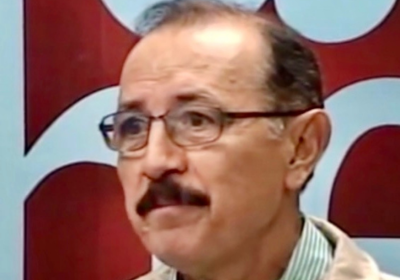Seventy-three-year-old former Sandinista leader Hugo Torres died in Nicaragua's capital on February 12. Dick Nichols pays tribute and looks at the circumstances leading to Torres's arrest and imprisonment eight months ago.
Daniel Ortega
Nicaraguans commemorated the 40th anniversary of their country’s revolution on July 19 in a variety of ways, reflecting counterposed views on the present government.
While President Daniel Ortega and his partner, Vice President Rosario Murillo addressed thousands of Sandinista party faithful at Lake Managua, others, including many former Sandinistas, quietly commemorated this historic day without Ortega, writes Allen Jennings.
President Daniel Ortega’s conciliatory moves in late April and May had raised hopes that tensions in Nicaragua would simmer down. Following several days of violent protests that began on April 18, Ortega called for the establishment of a roundtable dialogue to be mediated by Catholic bishops and he withdrew his social security reforms, the initial trigger for the protests.
However, the government’s conciliatory move has been met with an unprecedented escalation of violence.
The combined International Workers Day and memorial rally for Tomas Borge, a cofounder of the leftist Sandinista National Liberation Front (FSLN), held in the capital Managua on April 30 seems to have vindicated the Sandinista government of President Daniel Ortega, with estimates of the turnout varying between 100,000 to 200,000 supporters.
The march came a week after violent protests rocked the country for five days starting on April 18.




